本文目录
关于新年的单词英语有哪些
1、you all my best wishes for your perfect health and lasting prosperity。
恭贺新禧,祝身体健康、事业发达。
2、Best wishes for the holidays and happiness throughout the New Year。
恭贺新禧,万事如意。
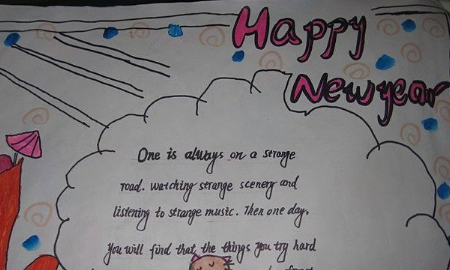
3、Good luck and great success in the coming New Year。
祝来年好运,并取得更大的成就。
4、I hope you have a most happy and prosperous New Year。
谨祝新年快乐幸福,大吉大利。
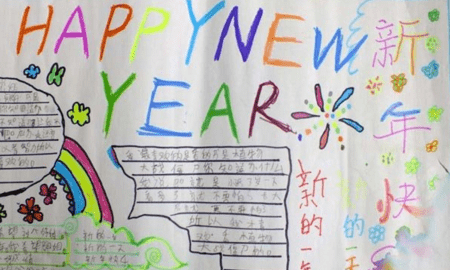
5、New Year greeting to cheer you, my good friend。
希望新年祝福给你带来欢乐,我的好朋友。
6、I hope you have a most happy and prosperous New Year。
谨祝新年快乐幸福,大吉大利。
春节的英文版介绍,简短
每一个节日都有它存在的意义,那么你知道这些节日有哪些知识点呢?下面,我在这给大家带来春节的英文版介绍,欢迎大家借鉴参考!
Chinese Spring Festival, also called Lunar New Year, has more than 4,000 years of history. Being one of the traditional Chinese festivals, it is the grandest and the most important festival for Chinese people. It is also the time for the whole families to get together, which is similar with Christmas Day to the westerners.
中国的春节,也被称为农历新年,迄今已有四千多年的历史。对于中国人来说,这是规模最大,最重要的传统节日。就如同西方的圣诞节一样,春节是一家团聚的日子。
Originating during the Shang Dynasty (about 17th - 11th century BC), Spring Festival, which celebrates family reunion, is full of rich and colorful activities, and hopes with the advent of spring and flowers blossoming. People from different regions and different ethnic groups celebrate it in their unique ways.
春节起源于商朝(公元前11-17世纪),为了庆祝全家团圆和表达对春暖花开的期盼,节日期间会准备丰富多彩的活动。不同地区和不同少数民族人们会用自己独特的方式庆祝这一传统节日。
Legends
春节传说
There are many legends about Spring Festival in Chinese culture. In folk culture, it is also called “guonian” (meaning “passing a year”). It is said that the “nian” (year) was a strong monster which was fierce and cruel and ate one kind of animal including human being a day. Human beings were scared about it and had to hide on the evening when the “nian” came out. Later, people found that “nian” was very scared about the red color and fireworks. So after that, people use red color and fireworks or firecrackers to drive away “nian”. As a result, the custom of using red color and setting off fireworks remains.
中国文化中有很多关于春节的传说。在传统文化中,春节亦被称为“过年”。传说“年”是一种凶猛异常的怪物,每天都会吃一种动物(包括人)。人们非常惧怕他,当“年”夜间出来活动时,人们会找地方躲起来。后来,人们发现“年”非常害怕红色和爆竹,于是,人们用红色和鞭炮来驱赶“年”。久而久之,春节用大红色和放鞭炮的习俗就保留了下来。
Festivities Schedule
春节活动
Preparing the New Year starts 7 days before the New Year’s Eve. According to Chinese lunar calendar, people start to clean the house on Dec. 24, butcher on Dec. 26th and so on. People have certain things to do on each day. These activities will end Jan. 15th of the lunar calendar.
新年的准备工作在除夕前的七天就开始了。根据中国农历,人们从腊月二十四开始打扫屋子,二十六日杀猪宰羊等等。每一天都有不同的活动,所有这些活动将在正月十五结束。
Taboos
春节禁忌
The Spring Festival is a start for a new year, so it is regarded as the omen of a year. People have many taboos during this period. Many bad words related to “death”, “broken”, “killing”, “ghost” and “illness” or “sickness” are forbidden during conversations. In some places, there are more specific details. They consider it unlucky if the barrel of rice is empty, because they think they will have nothing to eat in the next year. Taking medicine is forbidden on this day, otherwise, people will have sick for the whole year and take medicine constantly.
春节是新的一年的开始,预示着一年的运气,所以过年期间有很多禁忌,比如“死”“破”“杀”“鬼”“病”这类字眼是谈话中要避免的。在某些地方还有一些特殊的禁忌,比如新年米缸空了不是好兆头,因为这预示着新的一年将没东西吃,春节那天也不能吃药,这会预示着新的一年疾病产生,医药不断。
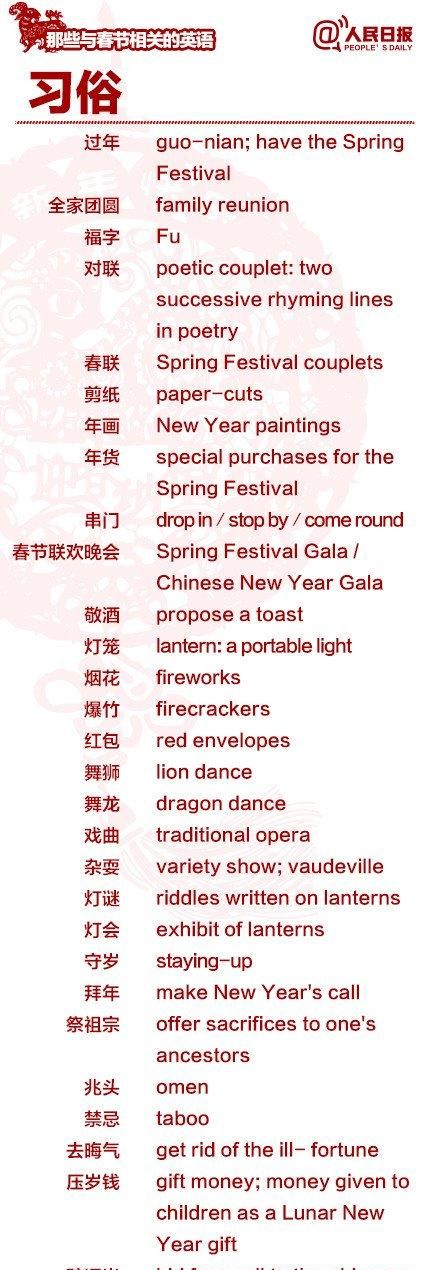
关于新年的英语内容有哪些作文
写作思路:以介绍新年春节的来源作为开头,之后介绍新年的习俗,和各地之间不同的气氛特点,最后描述之所以会是重要节日的原因,正文:
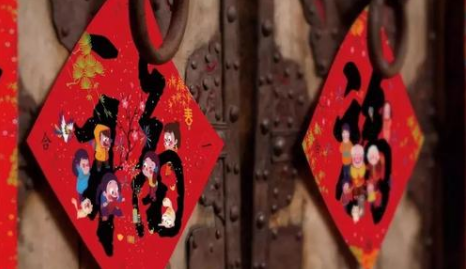
The Spring Festival, the Lunar New Year, is the first year of the year and also the traditional "New Year's Day".
春节,即农历新年,是一年之岁首,亦为传统意义上的“年节”。
Spring Festival has a long history, which evolved from the first year of prayer in ancient times.
春节历史悠久,由上古时代岁首祈年祭祀演变而来。
During the Spring Festival, various activities are held throughout the country to celebrate the Spring Festival, with a lively and festive atmosphere.
在春节期间,全国各地均有举行各种庆贺新春活动,热闹喜庆的气氛洋溢。
There is a legend about the origin of the Spring Festival.
春节的来历有一种传说。
In ancient China, there was a monster called Nian, with long antennae and unusual ferocity.
中国古时候有一种叫“年”的怪兽,头长触角,凶猛异常。
Nian lived deep in the sea for many years.
“年”长年深居海底。
He did not climb ashore until New Year's Eve, devouring livestock and hurting people's lives.
每到除夕才爬上岸,吞食牲畜伤害人命。
Therefore, on New Year's Eve, people take the old and the young to escape to the mountains to avoid the harm of the Nian.
因此,每到除夕这天,村村寨寨的人们扶老携幼逃往深山,以躲避“年”兽的伤害。
Later on New Year's Eve, an old beggar from outside the village told people how to drive out the Nian.
后来有一年除夕,从村外来了个乞讨的老人,告知了人们驱赶“年”兽的办法。
Originally, Nian was most afraid of red, fire and explosion.
原来,“年”最怕红色、火光和炸响。
Since then, every New Year's Eve, families stick red couplets and set off firecrackers.
从此每年除夕,家家贴红对联、燃放爆竹。
Households have bright candles and wait for the new year.
户户烛火通明、守更待岁。
In the early morning of the Eleventh day, we have to go to relatives and friends to say hello.
初一一大早,还要走亲串友道喜问好。
This custom has become the most solemn traditional festival among Chinese people.
这风俗越传越广,成了中国民间最隆重的传统节日。
春节英语知识小报
I like the Chinese new year better than any other festival. This is a time especially for rest and joy. I need not study. I wear good clothes and eat good food. I have a good time from morning till night. I am as happy as a king.
我喜欢中国新年比喜欢其它任何节日更甚。这是一个专为休息和欢乐的时间。我不需要读书。我穿好衣服,吃好东西。我每天从早到晚日子过得轻松愉快。我和上帝一样快乐。
2.
春节是中国民间最隆重的传统节日。在夏历正月初一,又叫阴历年,俗称“过年”、“新年”。春节的历史很悠久,它起源于殷商时期年头岁尾的祭神祭祖活动。按照我国农历,正月 初一古称元日、元辰、元正、元朔、元旦等,俗称年初一,到了民国时期,改用公历,公历的一月一日称为元旦,把农历的一月一日叫春节。
Lunar New Year , the most solemn of traditional Chinese folk festivals. First day of the first lunar month in the traditional Chinese lunar calendar, known as the Moon, commonly known as "New Year" and "New Year." The long history of the Spring Festival, which originated in the Shang period the year draws to a close servicemen and the memorial activities. According to China's Lunar, the first day of the first lunar month yen ancient name, Yuan-chen, a copy, is Emperor, the New Year Day, which is commonly known as Day of the Republic. switch to the Gregorian calendar, the calendar on January 1 as New Year's Day, January 1st called the Lunar Spring Festival.
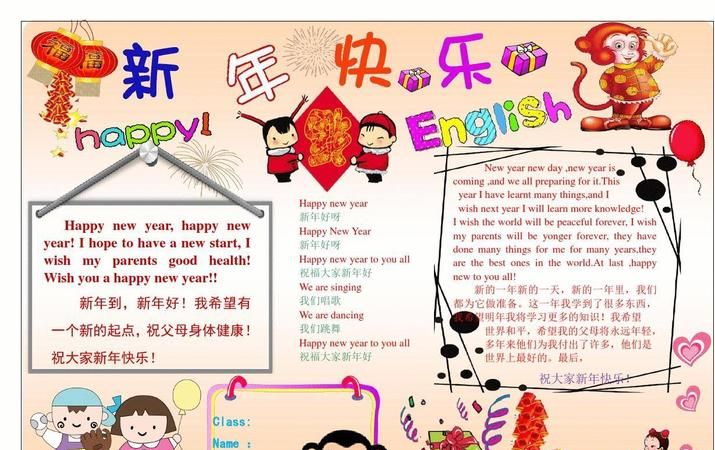
以上就是关于新年知识英文版 ,关于新年的单词英语有哪些的全部内容,以及新年知识英文版 的相关内容,希望能够帮到您。
